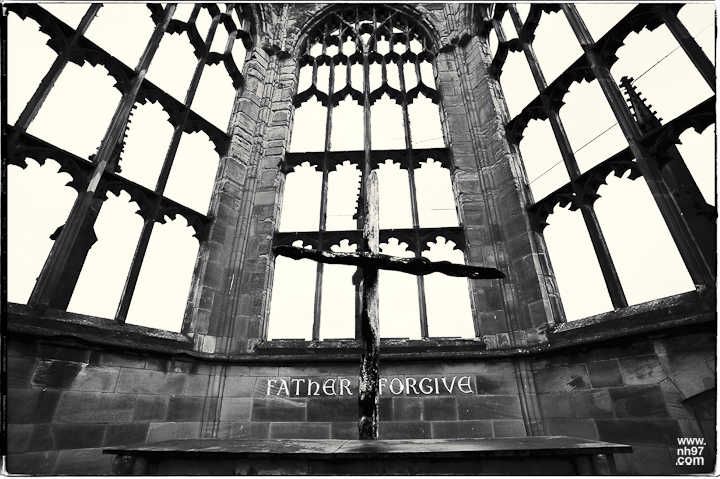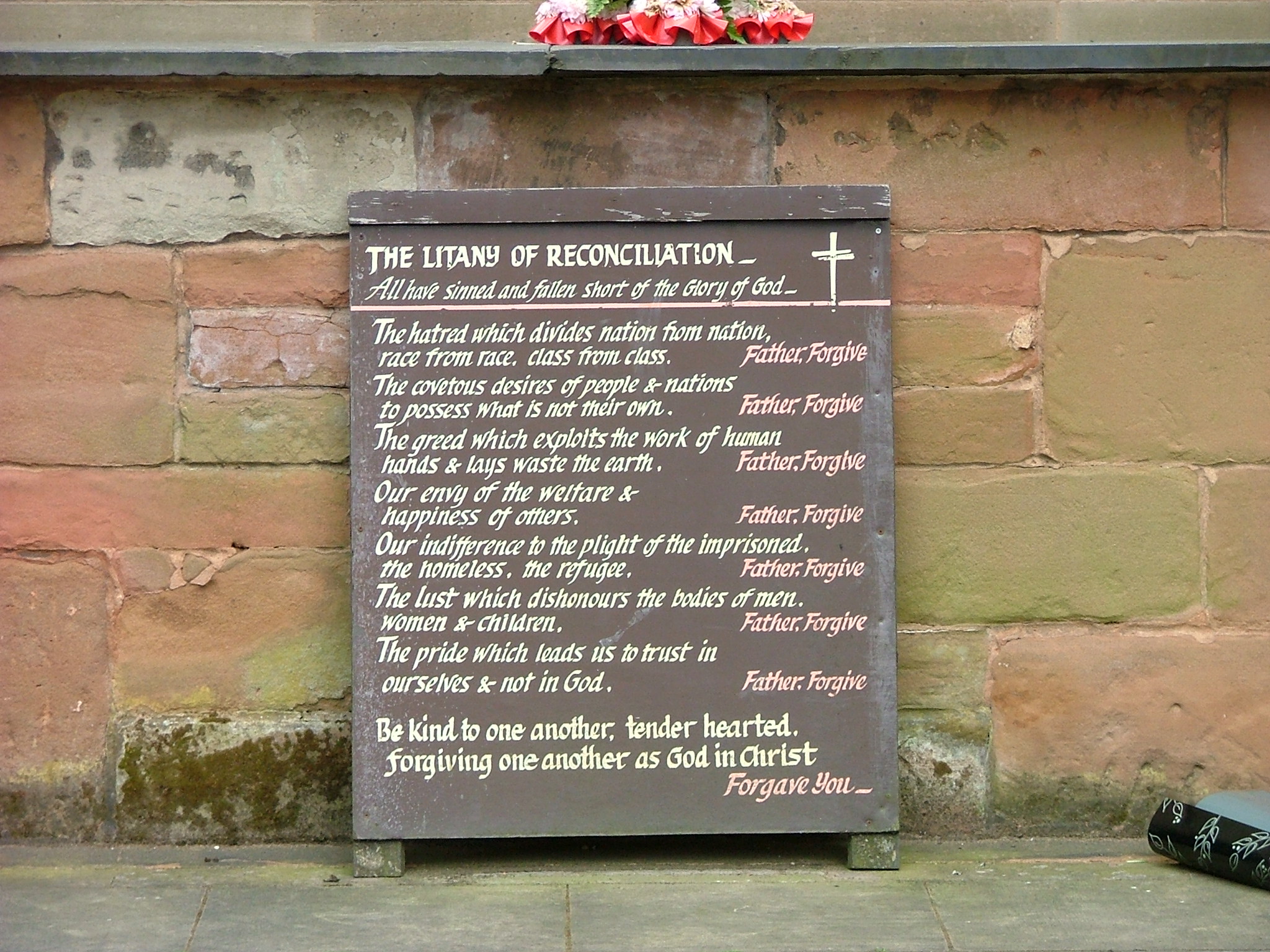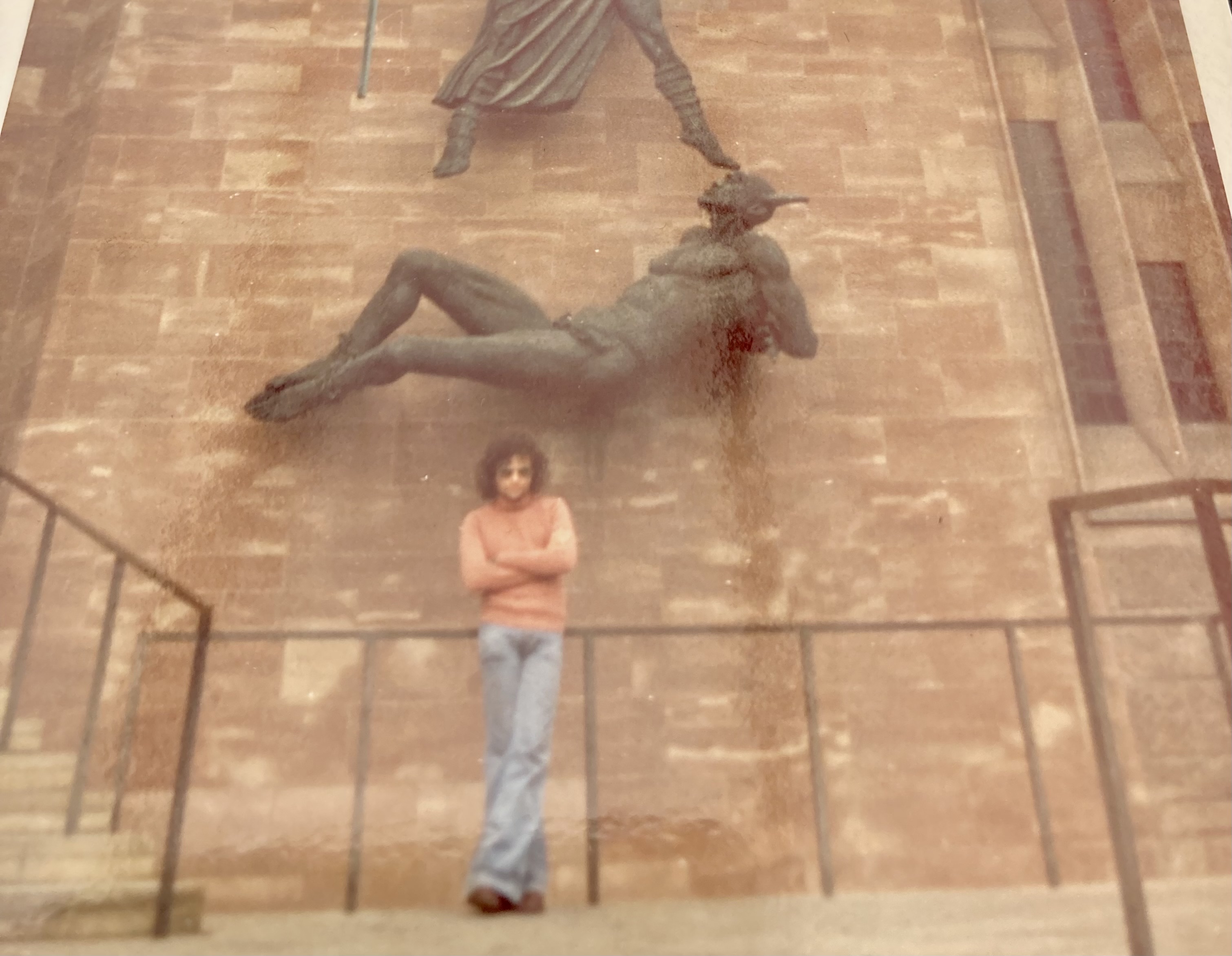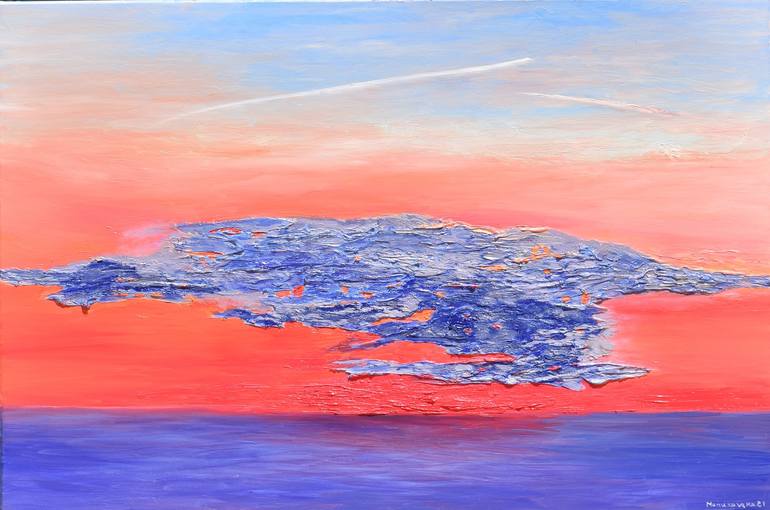‘Father Forgive’: Coventry Cathedral and my journey of discovery
The 1930s were humanity's darkest, bloodiest, and ugliest hour. Is the world steadily sliding back to the chaos of the 1930s?
At these times of personal, societal and global challenges, confusion, pain, fear, economic decline and many more uncertainties, coupled with the rise of populism, intolerance, protectionism, exceptionalism, pseudo-nationalism, and isolationism, we cannot, but turn to humanity and wisdom and learn from the healing story of Coventry Cathedral. Carpe diem!
‘To forgive is to set a prisoner free only to discover that the prisoner is you’- Lewis Smedes
'Forgiveness is the final form of love.'- Reinhold Niebuhr

“Father Forgive”: These two words which I discovered at the ruins of Coventry Cathedral in 1973 changed the course of my life.
‘Resentment is like drinking poison and then hoping it will kill your enemies…Forgiveness liberates the soul, it removes fear…’ Nelson Mandela
It takes resilience, commitment, courage, strength, and spiritual maturity to rise above the battlefield of our emotions, fears, anxiety, and prejudices and to see the world through eyes of compassion, kindness, and empathy. It takes a spiritual warrior to go beyond fear and hatred to see the soul of the enemy. If we do not learn how to forgive, if we do not attempt to reconcile our differences and celebrate what we have in common, then, we will stay stuck in the quagmire of anger, pain, hurt, and grief, perpetuating and deepening our pain and suffering, causing more death and destruction.
We are fortunate today, as Provost Richard Howard of Coventry Cathedral has set an example for us all to follow.
In so many ways, Provost Howard has reminded us all around the world what it means to be human. He taught us that forgiveness is not only possible – it is powerful and it is essential.
On the night of November 14, 1940, much of the city was destroyed in a raid by the Luftwaffe

Photo Credit:It Is Written TV
The cathedral’s provost, Richard Howard, “was one of four firefighters on the cathedral roof that night, but he could only watch in horror and rescue a few of the cathedral treasures, as the roof caught fire and ravaged the building…When the all-clear sounded just after 6:00 in the morning, the exhausted people of Coventry emerged to find that the historic centre of the city had been largely obliterated.”
Six hundred people were killed and an untold number were injured. Somehow, the 300 foot Gothic tower built in the 1400s survived, as did the outer walls of the cathedral. The roof and everything that had been within the walls was a massive heap of rubble.
The next day, standing in the ruins of the cathedral, the smell of smoke filling his nostrils, the exhaustion of a frantic night of death and devastation weighing on every fibre in his body, Richard Howard wrote the words “Father Forgive.” It is nearly impossible to imagine such an act.’...A Portrait Of Humanity: Provost Howard’s Gift to the World
At this critical time in our world today, by embracing Provost Howard’s philosophy of forgiveness, we can all become better people and create a more just and caring world. Carpe diem!
Father Forgive: It’s Impact on Me

Photo: kmyra.ca
Every weekday at noon in the new cathedral (and in the ruins on Fridays – a service in which I have participated on many occasions over the years) the Coventry Litany of Reconciliation is prayed. In the context of World War Two, the cathedral's destruction and the work of the Community of the Cross of Nails which rose from the ashes, this prayer is the ultimate message of hope and healing for a better life from Coventry to the world:
‘All have sinned and fallen short of the glory of God.
The hatred which divides nation from nation, race from race, class from class … Father, Forgive.
The covetous desires of people and nations to possess what is not their own … Father, Forgive.
The greed which exploits the work of human hands and lays waste the earth … Father, Forgive.
Our envy of the welfare and happiness of others … Father, Forgive.
Our indifference to the plight of the imprisoned, the homeless, the refugee … Father, Forgive.
The lust which dishonours the bodies of men, women and children … Father, Forgive.
The pride which leads us to trust in ourselves and not in God … Father, Forgive.
Be kind to one another, tender-hearted, forgiving one another, as God in Christ forgave you.’
The Healing Power of Forgiveness and Reconciliation: Hoping and Thriving Together
In a world awash with so many conflicts, wars of hatred and destruction, racism and xenophobia, amongst others, it is high time to revisit the timeless story of Coventry and the Cathedral.
Life is an incredible journey of discovery. There simply is no way to know everything that will happen in life before experiencing it. The joy of finding the ‘Coventry Cathedral Story’ has been very highly motivational and transformational to me. There is no fun in life if we presume to know it all. It is this journey into the unknown and finding pearls of wisdom along the way that makes life so interesting, worthwhile and meaningful.
My Story, ‘The story of a boy from Iran who became a man in Coventry’ is exactly the same as Coventry’s own story, positivity driven by hope.
The world needs hope; every person, everywhere, needs hope. HOPE gives us life. HOPE connects us. HOPE fuels us. HOPE moves us. HOPE keeps us. HOPE grounds us. HOPE protects us. HOPE anchors us.
As far back as the 6th century BC, the Greek poet Theognis of Megara said:
“Hope is the one good god remaining.” The poet Theo Dorgan reminds us that hope is a profound act of imagination, the most important and the most neglected of the civic virtues. In the face of the present societal and global crises we can lie down in despair, or we can choose hope — which means placing all our faith in each other and in the boundless capacity of the imagination to reinvent circumstance, to establish new truths.
So now let me tell you a bit of my story: Let me open my heart to you.
There is so much that I can share with you. But in the interest of time and space, I need to fast track to November 1973, the day I visited Coventry Cathedral for the first time, the day and the moment that changed the course of my life.
It is 51 years since I first visited Coventry Cathedral. It had a profound impact on me, hugely influencing and inspiring me to be who I am and what I now do.
It was, if I remember rightly, on an early morning in November 1973. A few months earlier, I had met a wonderful girl from Coventry in Oxford, where we were living and studying, a girl who later became my dear wife, Annie. In July 1974 we were married at the old, historical St. Osburg’s in Coventry.
In November 1973 Annie had invited me to her home town of Coventry, so that she could introduce me to her parents. It was a memorable occasion for me, leading to a long and loving relationship between us, which I cherish dearly.
We visited the cathedral. I can recall it was a cold grey day. I was only 21 years old, and had arrived in England, only a couple of years earlier from Iran, as a student to further my studies. I did not know anything about Coventry, its bombed and destroyed Cathedral, its industrial heritage, and moreover, I did not know much about Christianity, except what I had heard about Jesus and Mary, which in Iran I knew as ”Hazrat-e Isa” and “Maryam-e Moghadas” (Prophet Jesus and Holy Mary).
To cut a long story short, Annie gave me a quick tour of the Cathedral, the old, destroyed one and then took me down the stairs to the new one.
For sure, I didn’t understand every word Annie was telling me. Indeed, I suspect I was lost at times but, as I recall, I could not believe what I was seeing and hearing.
Later on, in my search to learn more about what I had seen in Coventry Cathedral on that November day, I discovered: Coventry and I: The story of a boy from Iran who became a man in Coventry
Empowered and envisioned by the power of Coventry and the Cathedral, I was enabled in association with some wonderful, inspiring friends,to achieve a great deal, doing some wonderful and rewarding things, for which I remain eternally grateful.
Below I am delighted to highlight a few notable examples of those rewarding and life changing moments for us:
Centre for the Study of Forgiveness and Reconciliation
“I am deeply honoured to have been invited to inaugurate your Centre for the Study of Forgiveness and Reconciliation with this lecture, and to act as the Centre’s Patron.” –Mary Robinson, President of Ireland
I remember this day very affectionately, with pride and honour. A few months earlier, George Bull and I had sent a letter, if my memory serves me right, through the Irish Ambassador in London (a close personal friend of George) to President Robinson, inviting her to deliver the inaugural lecture of the Centre for the Study of Forgiveness and Reconciliation, and to act as the Centre’s Patron.
Then, on 12 January 1996 I received a fax from the Irish Embassy in London with the most pleasing and wonderful news, that President Mary Robinson has most graciously accepted our invitation to come to Coventry, to deliver the inaugural lecture of the Centre for the Study of Forgiveness and Reconciliation, and to act as the Centre’s Patron.
I could only think about that November day in 1973, when Annie and I were standing in front of the Old Altar at the ruins of the Cathedral, when I had asked Annie, “Who is the Father” and “Forgive Who?”.
I wonder if you can put yourself in my place and feel the joy that I was feeling, and feel the gratitude that has taken me over as I write?
All in all, a most memorable day for us all. Now I wish to share with you the text of the President’s Address at Coventry Cathedral, followed by the booklet I had prepared to announce the establishment of the Centre:
President Mary Robinson’s Address at Coventry Cathedral, Monday 11 March 1996
I got on with the work of the Centre, putting a research team together, organising meetings, lectures, research proposals, writing working papers, etc. As part of the ongoing international activities of the Centre, we submitted a letter of invitation to former President F. W. de Klerk of South Africa, to give the Second Lecture of the Centre at Coventry Cathedral.
I was delighted and honoured when a few weeks later I received a fax that he had graciously accepted our invitation, and on 2 September 1997 Mr de Klerk came to Coventry, delivering his timely lecture “Principles of Forgiveness and Reconciliation” at the Cathedral.
Below you can read the text of his speech:
Former President F.W. de Klerk’s Address at Coventry Cathedral, 2 September 1997
See also:
Forgiveness and Reconciliation in Pursuit of the Global Common Good
Coventry’s Message of Hope to the World on the Armistice centenary and Remembrance Sunday
Like Coventry Cathedral Notre Dame will also rise again
14 November 1940: The Destruction and Re-birth of Coventry
75 Years On, Remembering Hiroshima And Nagasaki
War and Peace: A Timeless Lesson from Coventry
Good Friday Agreement and the Spirit of Forgiveness and Reconciliation
Coventry The City That Made Me

Photo: November 1973, A Moment that Changed My Life, when I first visited Coventry Cathedral. Photo: Anne Mofid(nee Clifford)
GCGI is our journey of hope and the sweet fruit of a labour of love. It is free to access, and it is ad-free too. We spend hundreds of hours, volunteering our labour and time, spreading the word about what is good and what matters most. If you think that's a worthy mission, as we do—one with powerful leverage to make the world a better place—then, please consider offering your moral and spiritual support by joining our circle of friends, spreading the word about the GCGI and forwarding the website to all those who may be interested.

Journey of hope, a painting by Iryna Manukovska.
